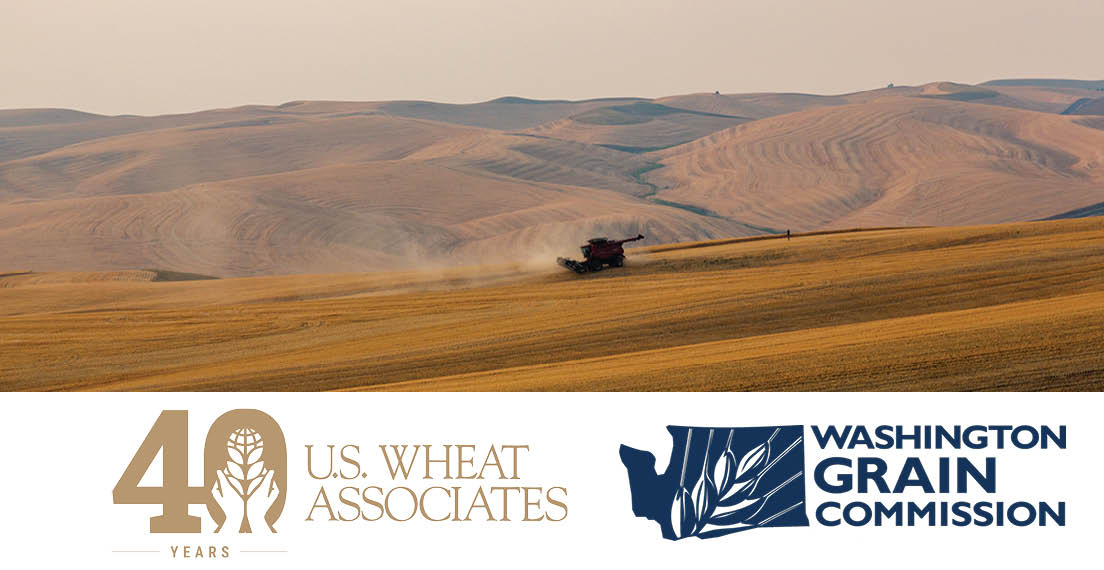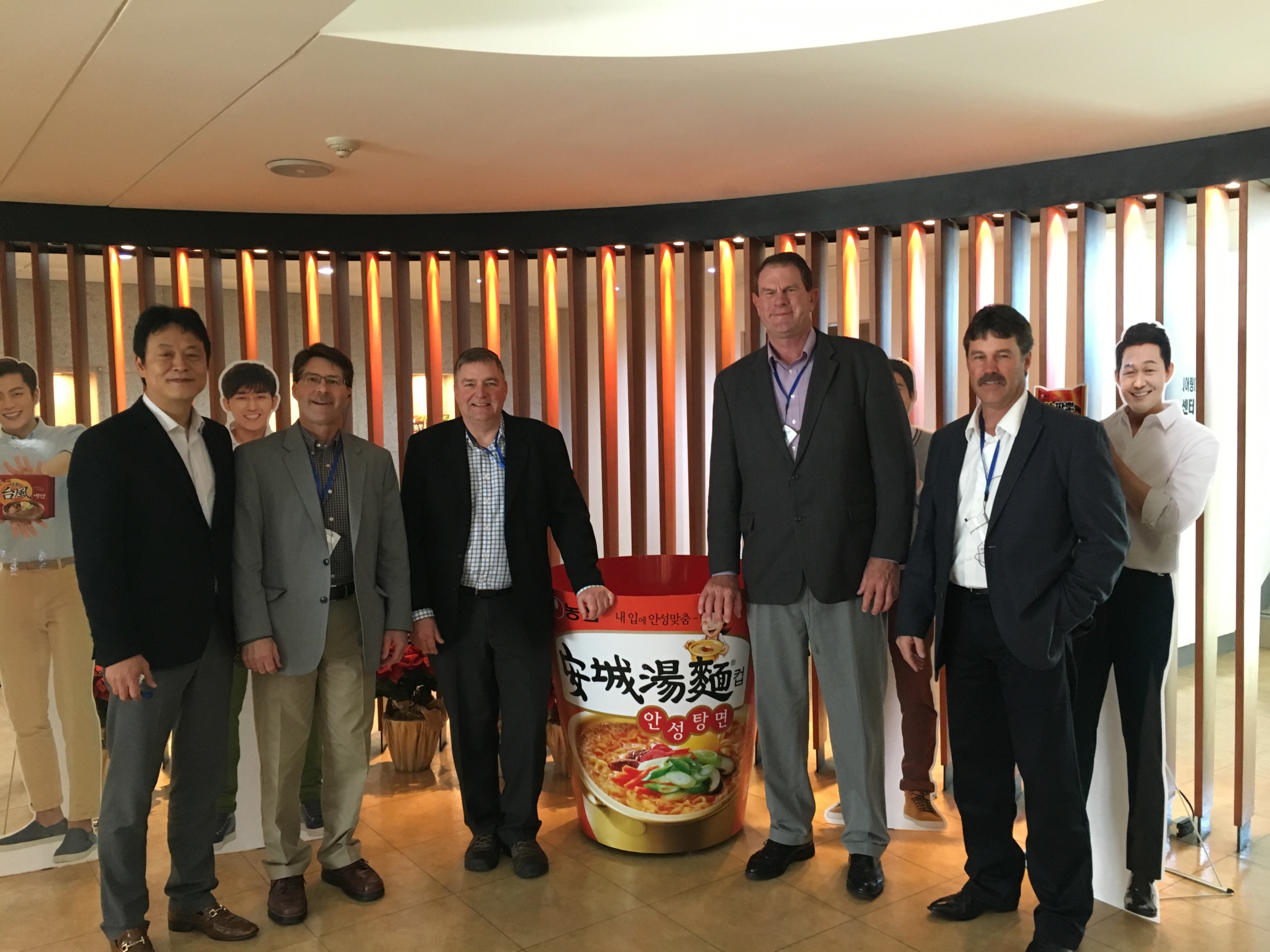Dependable People: A Spotlight on the Washington Grain Commission
For 40 years, U.S. wheat farmers have supported U.S. Wheat Associates’ (USW) efforts to work directly with buyers and promote their six classes of wheat. Their contributions to state wheat commissions, who in turn contribute a portion of those funds to USW, qualifies USW to apply for export market development funds managed by USDA’s Foreign Agricultural Service. Currently, 17 state wheat commissions are USW members and this series highlights those partnerships and the work being done state-by-state to provide unmatched service. Behind the world’s most reliable supply of wheat are the world’s most dependable people – and that includes our state wheat commissions.
Member: Washington Grain Commission
USW Member since 1980
Location: Spokane, Washington
Classes of Wheat Grown: Soft White (SW) and White Club, Hard Red Winter (HRW), Hard Red Spring (HRS) and Hard White (HW)
USW Leadership: Wayne Klindworth, 1990/91 Chairman; Christopher Shaffer, 1999/00 Chairman; Randy Suess 2011/12; Mike Miller 2017/18 Chairman
The goal of the Washington Wheat Commission (WGC) when it was chartered in 1958 was “to do as a group what cannot be done alone.” Now, more than half a century later, the organization, known as the Washington Grain Commission since 2009, is none the less committed to developing and improving existing markets for Eastern Washington farmers. The WGC is committed to growing market share in existing, emerging, and new markets around the world. Through promotion, trade, transportation and policy activities, and research on end use qualities, the WGC can carry the wheat legacy first brought by the famed American explorers Meriwether Lewis and William Clark, who, it’s said, planted the first Washington wheat in 1805.
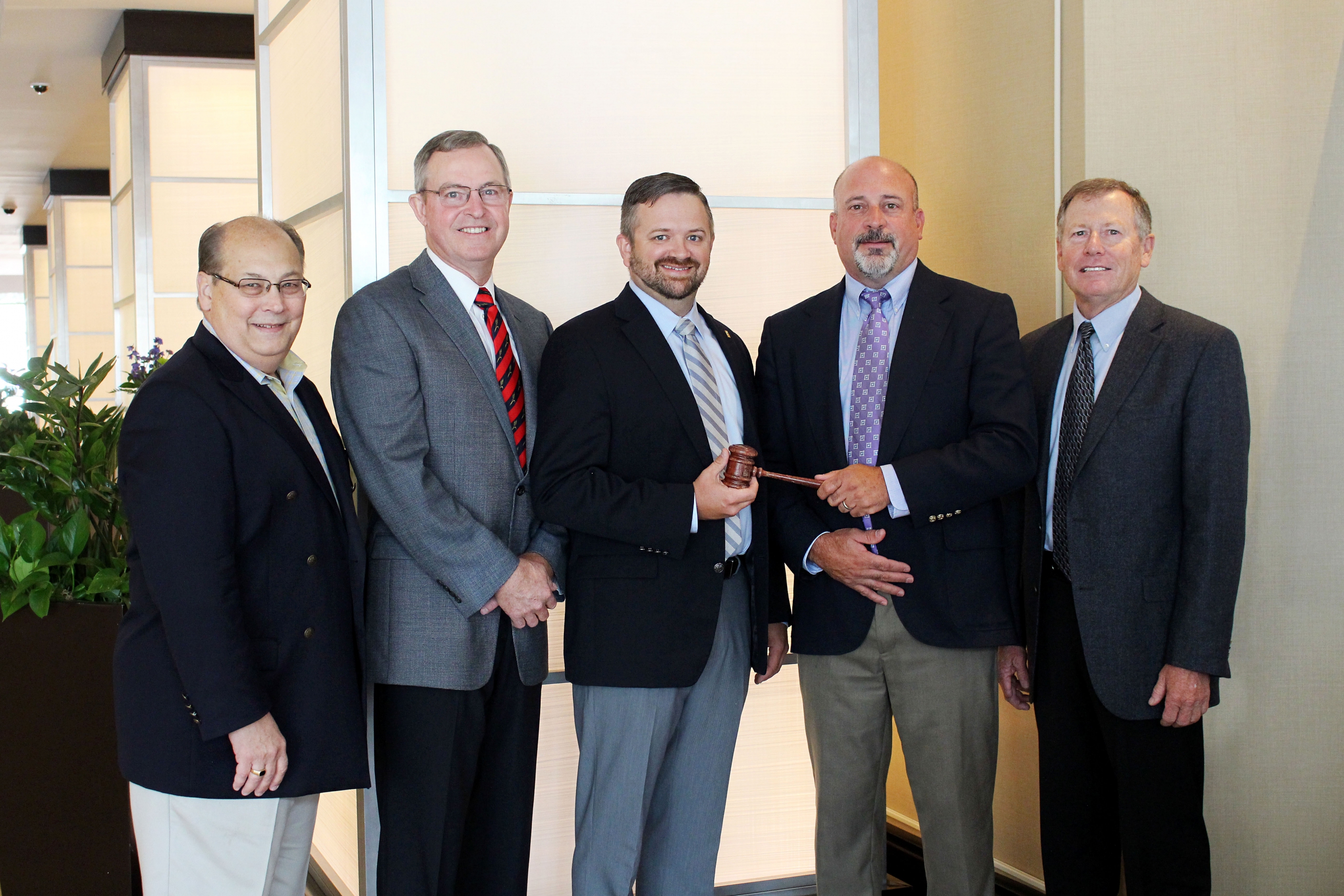
2017-18 USW Officers, including Washington wheat farmer Mike Miler as the new installed 2017/18 Chairman.
Why is export market development important to Washington wheat farmers and why do they continue to support USW?
While around 46 percent of the nation’s wheat crop is exported, upwards of 90 percent of Eastern Washington’s wheat crop heads overseas. About 80 percent of Washington’s production is in soft white wheat, used in sponge cakes, cookies and crackers.
Although we constantly emphasize quality, consistency is just as important as end product manufacturers need a wheat that will perform each and every time in the high throughput environment of modern food manufacturing facilities as well as in more artisan type uses. Having USW’s technical staff overseas is incredibly important. Their ability to troubleshoot problems and provide solutions is one aspect. The other is simply their enthusiasm for wheat sourced from the United States and how they communicate that commitment to customers.
How have Washington wheat farmers recently interacted with overseas customers?
Washington hosts upwards to a dozen trade teams a year from customers located in the Pacific Rim and Latin America. These opportunities not only allow us to educate buyers about the quality and performance of Eastern Washington wheat, they provide a venue for them to see wheat growing in a field in one of the most beautiful growing regions in the world.
With the WGC based out of Spokane, we also can introduce customers to wheat breeders at Washington State University and the Western Wheat Quality Lab in Pullman, where wheat samples are milled and evaluations of their quality tested. We also regularly take them to our nearby shuttle train loading facilities and to barge loading facilities on the Snake/Columbia River System. Due to restrictions caused by the COVID-19 pandemic, we have more recently been keeping touch with our customers with the help of USW, through phone calls, emails, videos, virtual meetings and even through the WGC podcast which has listeners overseas.
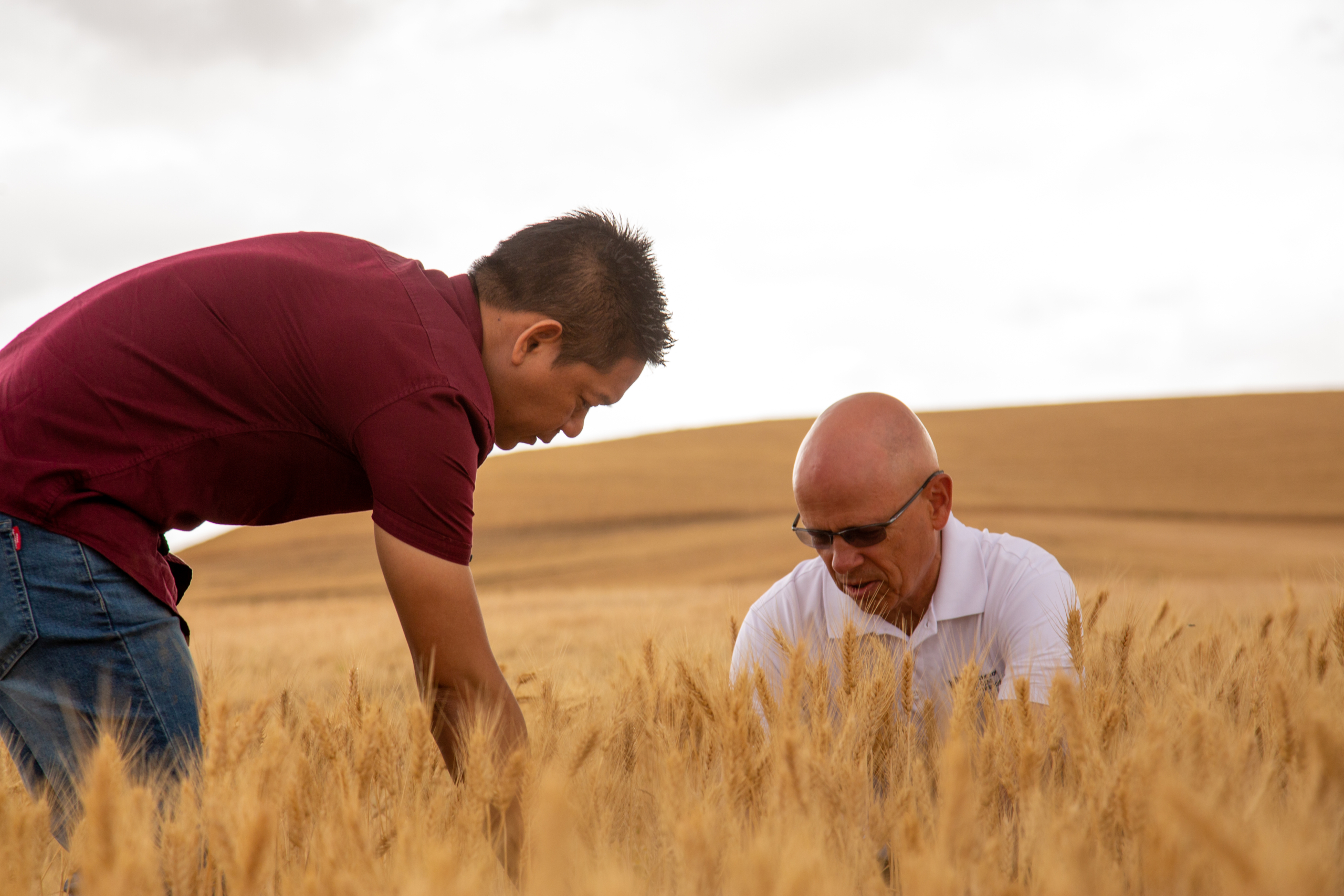
WGC CEO Glen Squires (R) with a U.S. wheat customer from Southeast Asia during the 2019 wheat harvest in Eastern Washington.
What is happening lately in Washington that overseas customers should know about?
Club wheat, which is a sub class of soft white wheat, has received increased attention thanks to an initiative with the Japanese. Technical exchange between breeders and Japanese milling representatives has helped identify specific end-product quality needs. This kind of cooperation is crucial in terms of getting customers what they want. We also have dialogue with private breeding companies of the absolute necessity of releasing high quality varieties. Our Preferred Wheat Variety brochure helps in that process.
Washington wheat farmers are actively tending to the wheat crop as they do every year to ensure the highest quality wheat is available for our customers. Field work is underway, equipment is being maintained and the crop is being tended in this moment of COVID-19 distancing protocols. Wheat breeders are actively working on new varieties and wheat variety quality testing efforts remain a key focus. The grain handling systems, including the railroads and river barge system, are fully operational as well. There are no delays in providing our overseas customers with high quality grain to meet their needs.
Learn more about the Washington Grain Commission on its website and on Facebook, Twitter and YouTube.
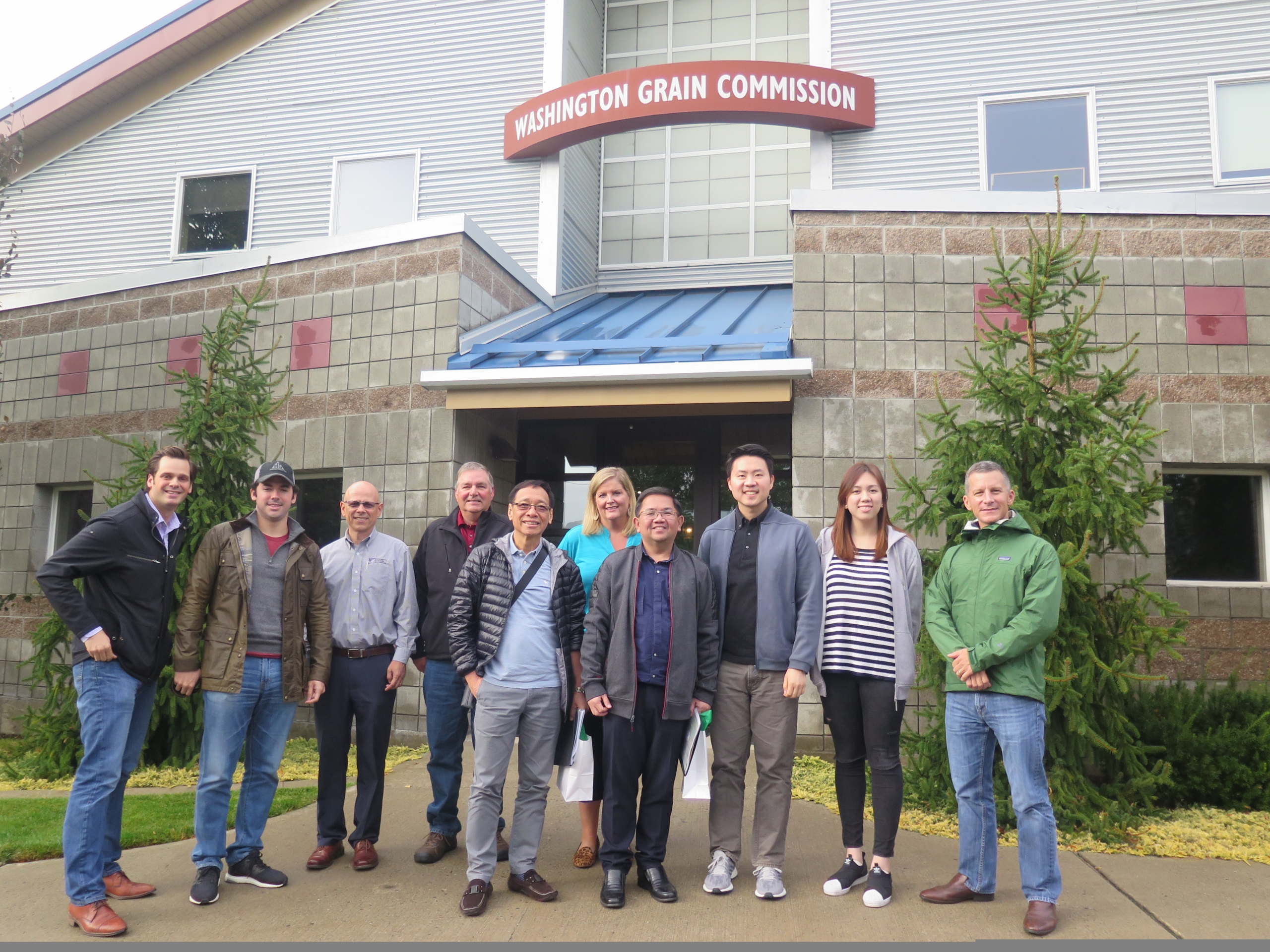
A 2018 USW Trade Delegation from the Philippines visited the Washington Grain Commission and met with several farmers.
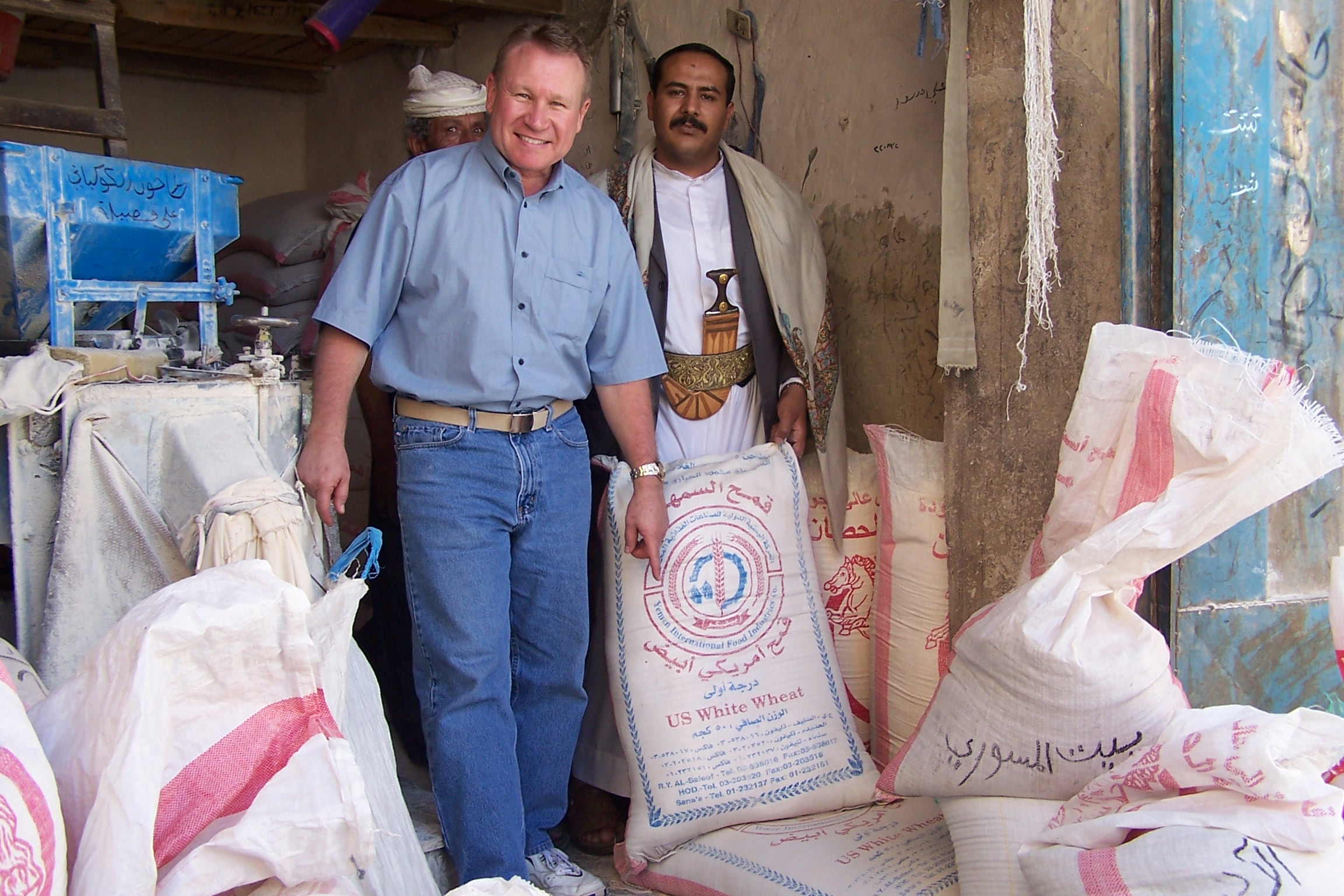
Randy Suess, retired Washington wheat farmer and 2011/12 USW Chairman, traveled to several countries with USW including Yemen where this picture was taken. Read more about Randy’s experiences here.
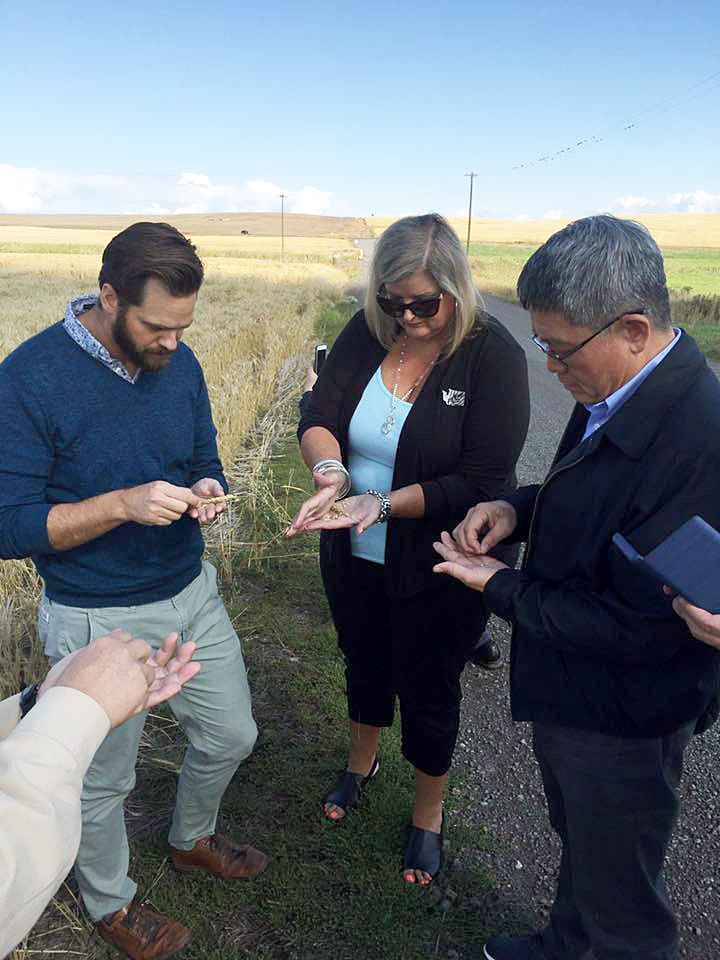
Tsung-Yuan (John) Lin (R) a U.S. wheat customer from Taiwan in Washington with Washington Grain Commission staff in a soft white wheat field.
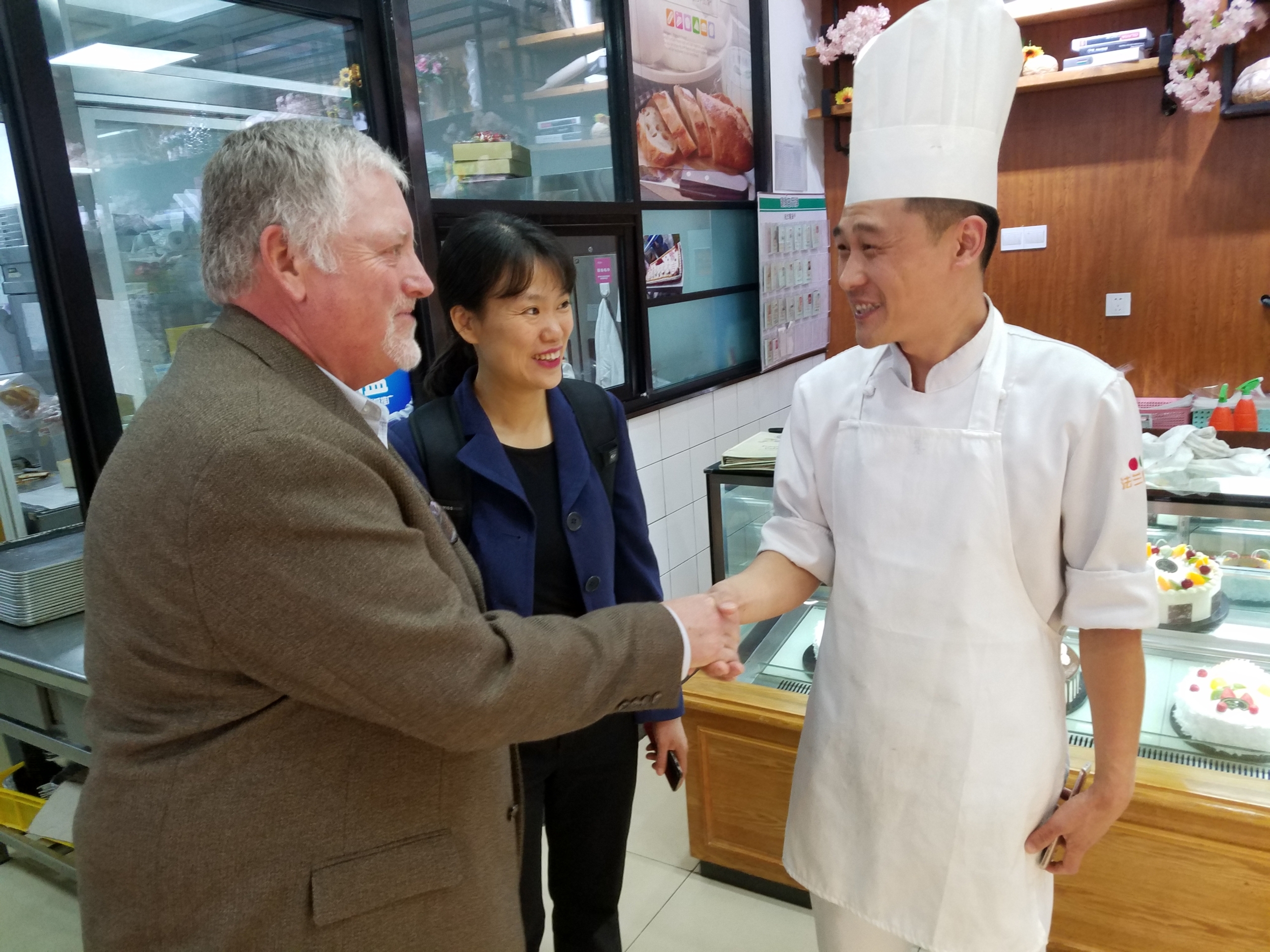
Washington wheat farmer Mike Carstensen was a member of the 2018 USW Board team that traveled to North Asia, including to this visit to a Chinese bakery.

